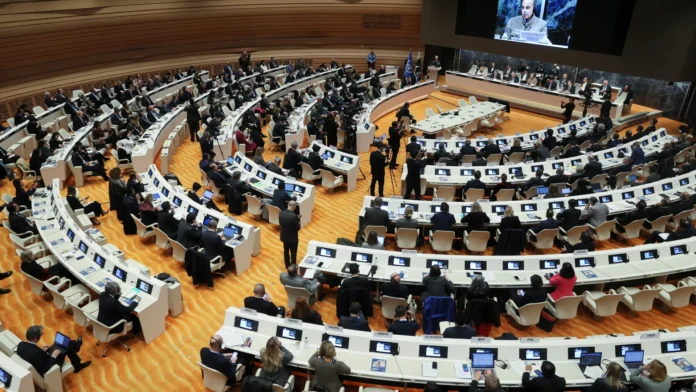At the recent Geneva Conference, world leaders and activists spotlighted two of Pakistan’s most pressing issues: religious persecution and the ongoing education crisis. Pakistan, a country of over 220 million people, has long struggled with these challenges, which have worsened in recent years due to political instability, social divides, and ongoing conflicts.
Religious minorities in Pakistan, including Christians, Hindus, and Ahmadiyya Muslims, face systemic discrimination and violence. The Geneva Conference called for global attention to these abuses, urging stronger measures to protect religious freedom in Pakistan. Human rights organizations report frequent attacks on religious minorities, forced conversions, and discriminatory laws that restrict their rights and freedoms. Speakers at the conference emphasized the need for Pakistan’s government to take responsibility and implement protective policies to ensure that religious freedom is upheld for all its citizens.
Simultaneously, the conference highlighted the country’s severe education crisis, with over 26 million children out of school, many of whom live in rural areas where education infrastructure is either inadequate or nonexistent. Pakistan’s education system struggles with overcrowded public schools, underqualified teachers, and poor resources, making it difficult for children to receive a quality education. Despite efforts from NGOs and international organizations to provide education to marginalized communities, such as the Roshan Pakistan Foundation school in Abdullah Goth, the majority of Pakistan’s children are left behind, often due to cultural norms, poverty, or child labor.
Religious persecution further exacerbates the education crisis, as marginalized communities often have limited access to schooling, particularly in areas where religious extremism is prevalent. The Geneva Conference emphasized the importance of educational reform to combat this issue, with calls for international support to improve Pakistan’s educational infrastructure and protect the rights of minority communities to access quality schooling.
The international community’s role in addressing these crises is critical. The Geneva Conference underscored the importance of holding Pakistan accountable for both its human rights violations and its failure to provide quality education for all its citizens. As Pakistan continues to face these dual challenges, the global community must unite to support both religious freedom and educational reform to ensure a better future for Pakistan’s children, regardless of their religious background.



